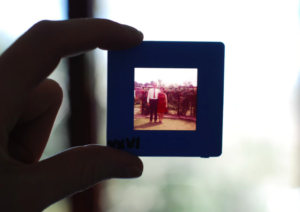This article will be addressing the concept of how social media can play a role in how we deal with death in contemporary society.
Technology is quickly advancing, almost everyone who knows how to use a computer and the internet has a Facebook account. In 2018, the recorded statistic was that 2.32 billion people were active users on this platform.
With social media being popularised and having so many users from different age groups, it wasn’t long before the issue of death came into play.

It has been proposed that soon the dead will outnumber the living on Facebook, with a whopping 10,000 users dying daily! The implications of this could mean that if Facebook suffers from a lack of interest in the future due to people moving on to different social media platforms that eventually Facebook may be a virtual cemetery.
So, is it worth considering what happens when a loved one dies? What do you do with their social media accounts? What happens when YOU die? There is a possibility our social media accounts could be floating around in cyberspace as digital headstones on our cyber graves!
Some implications of this could be that our future great-great-great-great grandchildren may just look up our social media accounts online to help them do an assignment about their ancestry. Even more bizarre, there’s the possibility that modern technology could become so advanced that virtual clones of ourselves who can imitate our past social media habits could answer questions from our future kin. An example of this is the kind of technology that can be seen in the tv show “Revenge”; there’s an app called MyClone which projects a perfect hologram of a social media user and can answer any question about the individual in that individual’s voice.
Social media also changes the way people deal with death. On a personal note, my father passed away in December 2018. Thankfully, I knew his social media passwords, so I logged on as him and posted that he had passed away and details of the funeral. I also did the same on my personal account, making sure to tag his account and maximise the chance of it being seen by everyone who mattered. As the days passed, he still kept getting notifications and messages, people sending their love to him and talking to him as if he could hear them from the afterlife. I didn’t realise how incredibly distressing this would be for me; it punched a hole so deep into my own grief every time I saw a message or a comment.

At this point, I was not aware that there was an option to spare me from this pain. I went to seek advice from a friend as I torn up about a decision I was trying to make – should I delete his account, or should I leave it? I knew that people were using his profile as a way to cope with him leaving this Earth too soon, and I didn’t want to disrupt their grieving process. That’s when I found out it was possible to memorialise an account!
Facebook keeps it very simple and straightforward to memorialise the account of a deceased loved one; in true modern-style to find out how, I googled it.
Basically, all you have to do is provide proof of death and your relationship to the deceased person.
By memorialising an account, it lets family and friends grieve in a way that’s less invasive. The account is unable to be signed into, and no notifications can come from the account. It’s a way for people to deal with a death by looking at that person’s account and their photos, and honouring their memory.

It really helps me personally to be able to look my father up on Facebook and see the pictures of us together, and it’s an intangible way to reaffirm he existed, and he meant something to me and others.
It’s also possible to delete a deceased loved one’s Facebook account by alerting Facebook of the death and your wishes if you’re an immediate family member.
You can also make preparations for your own online death; it is possible to name a ‘legacy contact’ who is able to be the executor of your online estates (social media accounts). You get to choose whether you want your account deleted or memorialised and the legacy contact has to abide by your virtual wishes.
All social media is different; for instance, Twitter will delete your account if you are inactive for 6 months, or you can request to have an account deleted if you are immediate family or the executor of their estate.
Instagram is like Facebook; you can memorialise an account, or have it deleted if you have proof of death. Pinterest has no death option at all.
If you want your death to be less of a hassle for your family members who are grieving, make your wishes well known and perhaps leave your passwords somewhere handy so it’s easy to let people you care about know of your passing.

